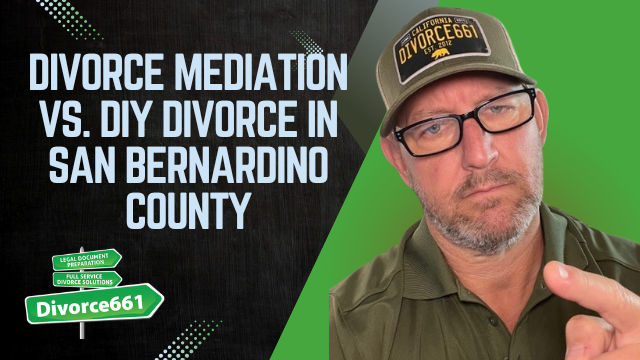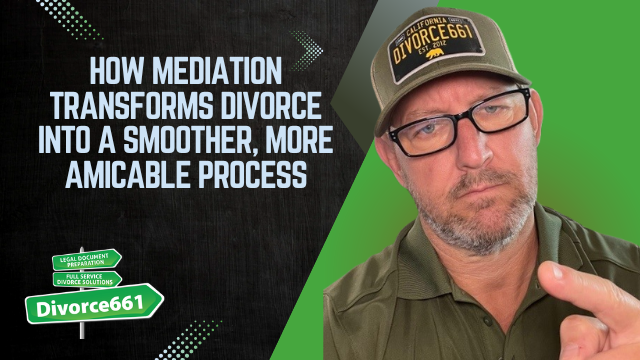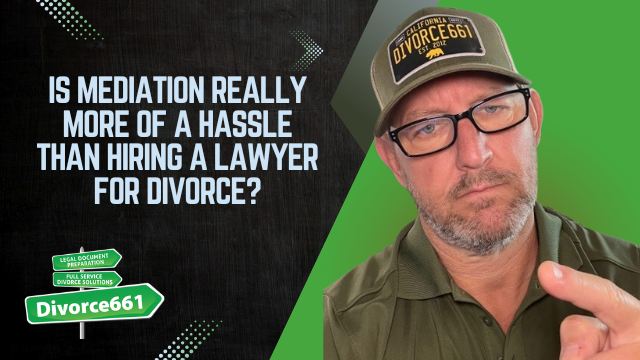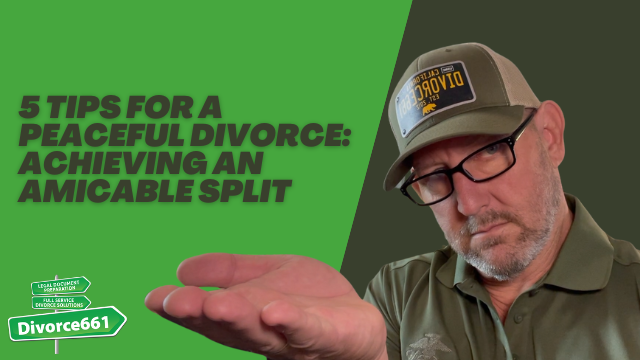Divorce Mediation vs. DIY Divorce in San Bernardino County
Introduction
Hi, I’m Tim Blankenship from Divorce661. If you’re filing for divorce in San Bernardino County and want to avoid high attorney fees, you’ve probably weighed mediation against a DIY divorce. Both paths can work—depending on your situation—but they serve different needs. Below I’ll explain how each option works, when to choose one over the other, common pitfalls, and how my team at Divorce661 can help you finish the process quickly and correctly.
Overview: Mediation and DIY Divorce — what they are
What mediation is
Mediation is a process where a neutral third party helps you and your spouse reach agreement on terms like property division, support, and custody. A mediator facilitates discussion and helps identify solutions, but they do not act as your attorney and they typically do not prepare or file court paperwork.
What a DIY divorce is
A DIY divorce is appropriate when both parties already agree on all material issues. You still need someone to prepare the court forms properly, file them with the court, and handle service and final judgment paperwork. Done correctly, this route can avoid court appearances and significantly lower costs.
When to choose mediation
- You and your spouse need help negotiating unresolved issues.
- You want a neutral facilitator to keep discussions productive and fair.
- You’re willing to pay for the mediation sessions but still expect to handle or hire someone to file paperwork afterward.
When to choose a DIY divorce
- You and your spouse already agree on division of assets, debts, support, and custody (if applicable).
- You want to minimize fees and avoid court appearances.
- You need someone to ensure forms are completed correctly and filed with the San Bernardino County court.
Common misunderstanding: mediators vs. filing agents
One frequent surprise I see is couples paying for mediation and later finding out their mediator didn’t prepare or file any court forms. As one recent client told me, their mediator “didn’t prepare or file any court forms,” and they came to us to take care of the remaining steps. That distinction matters: mediation helps you reach agreement; it usually doesn’t finalize your divorce with the court.
Real client story (what can happen)
We recently helped a San Bernardino couple who paid for mediation to reach an agreement. After their sessions, they were surprised to learn that the mediator wouldn’t be filing their paperwork. They hired us, and we prepared the forms, filed them correctly, handled service and disclosures, and their divorce judgment was approved within a few weeks.
Step-by-step: How Divorce661 handles a DIY or mediated divorce
- Initial consultation to determine the best path—mediation referral or direct filing.
- Preparation of all required court documents for San Bernardino County.
- Proper service of paperwork to the other party.
- Exchange of required disclosures and financial documents.
- Filing the final judgment and ensuring the divorce is entered by the court.
Risks of DIY forms without professional help
Filing incomplete or incorrect forms can delay your case, lead to rejected filings, or create future legal complications. Even when both parties agree, structure and wording matter. Doing it yourself without guidance can cost more in the long run if mistakes require corrections or court intervention.
How to decide: quick checklist
- Do you agree on all major issues? If yes, DIY filing is likely the fastest and least expensive route.
- Do you need help negotiating or resolving contested issues? If yes, mediation makes sense—just know you’ll still need a plan for filing forms afterward.
- Are you comfortable handling legal forms and meeting court requirements? If not, get professional help to avoid delays or errors.
Why work with Divorce661
- Full-service divorce support for amicable couples in California: filing, service, disclosures, and judgment.
- Flat-fee pricing to avoid surprise attorney bills.
- Referrals to trusted mediators, or the option to skip mediation if you already have an agreement.
- Clear, affordable path that gets your paperwork done right the first time.
Conclusion and next steps
If you’re filing in San Bernardino County and want a clear, affordable path forward, start with a free consultation. We’ll help you choose whether mediation or a DIY filing is the right fit and make sure everything is completed correctly. Visit Divorce661.com to schedule your free consultation and learn how we can help you finish your divorce without unnecessary time or expense.
Question for you
Which option sounds right for your situation—mediation or a DIY divorce? Consider where you stand on agreement, complexity, and whether you want someone to handle the paperwork end-to-end.










